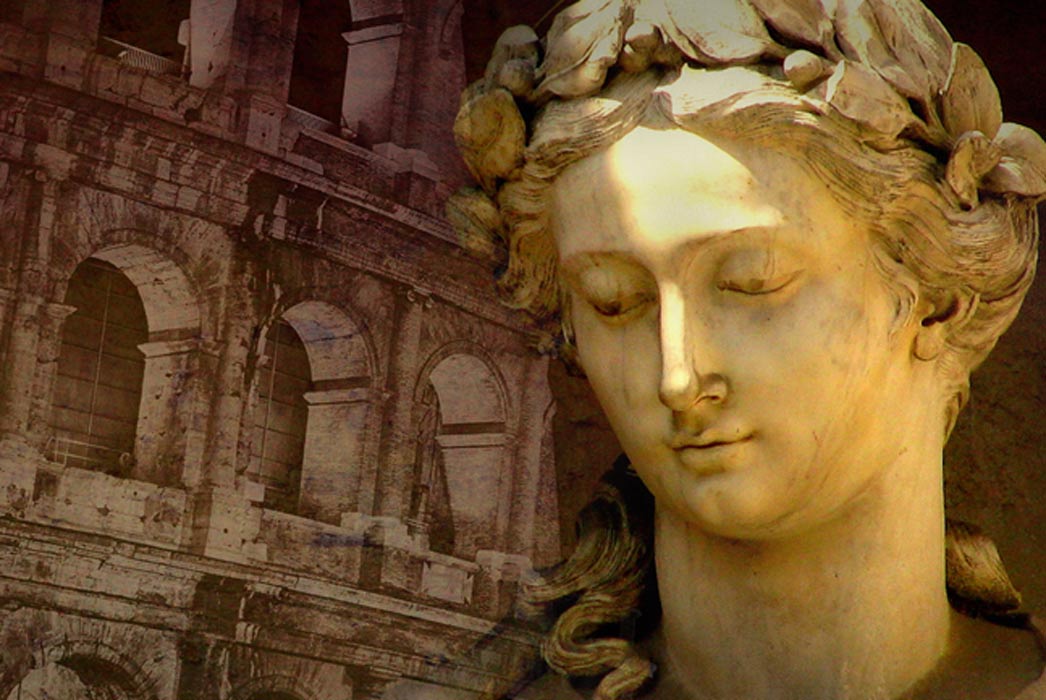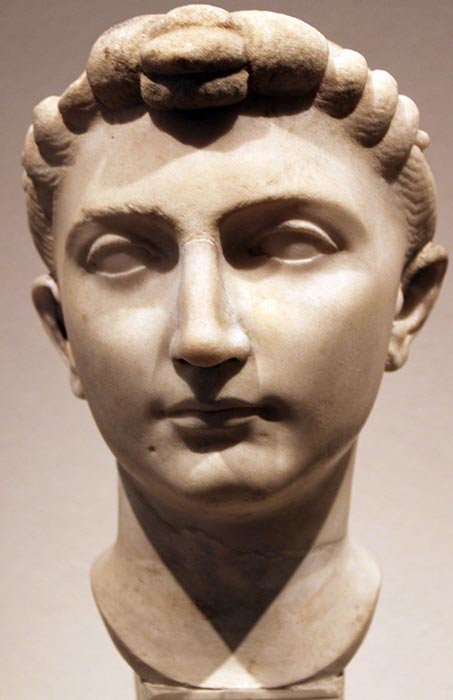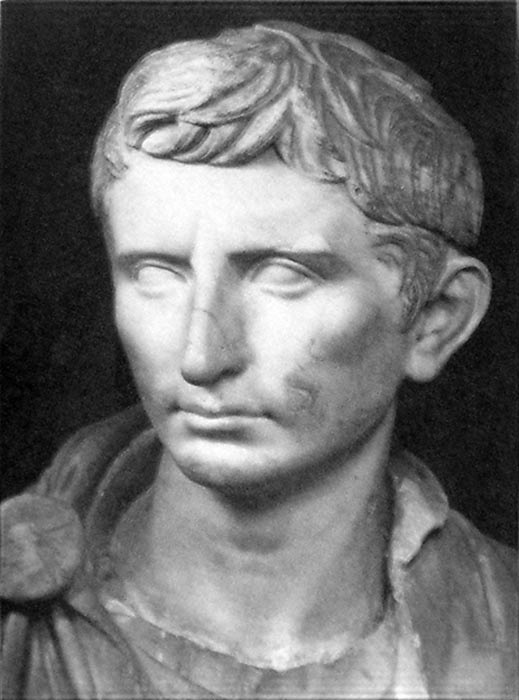
The Unusual Life and Death of Julia: A Woman Trapped in the Empirical Intrigues of Ancient Rome
Although they could not officially hold public offices, there were many women who were able to influence the course of Roman history from a position behind the scenes. Julia, the only daughter of Emperor Augustus, was not one of them. In fact, her name stands out from the list of known imperial women at the time as probably the only one who was not involved in politics one way or the other. She became a largely ignored character and relegated to footnotes in the history relating to her father, her husbands and her children.

Portrait of a girl, attributed to Julia Augustus. (CC BY 3.0)
From what we can gather from the little information we have about her life, Julia seemed to have had no head for intrigue and preferred to enjoy the advantages that came from being a member of the imperial family. In fact, one gets the impression that should she had been a wife of a low-ranking official or a well-off merchant, Julia would have been contented. However, being the daughter of the first emperor of Rome meant that it was her destiny to play her part in the political maneuverings of the empire.
The Childhood and Strict Education of Julia
Julia, or Julia Augusti Filia (Julia Daughter of Augustus), is frequently referred to as Julia the Elder when one wishes to distinguish her from her daughter, Julia the Younger. She was born in 39 BC, when Augustus was still known as Octavian. Octavian divorced Scribonia, Julia's mother, and took Julia from her soon thereafter, claiming complete parental control over her in accordance with Roman custom. She then lived with Octavian and his new bride, Livia.

Octavian, or Emperor Augustus. Bust dated to around 30 BC. Museo Capitolino, Rome, Italy. (Public Domain)
Julia’s education appeared to be strict. In addition to her studies, in which she had access to the best teachers, literatures and references Rome could provide, she was taught the more traditional arts of spinning and weaving. As her childhood was at the beginning of Augustus’ rule, one would imagine that her father was still finding his stride as Emperor. Julia's social life, therefore, was severely controlled, and she was allowed to talk only to people whom her father or Livia had vetted for her safety.
- The Spirit of Beatrice Cenci - A Tale of Terrible Injustice in Ancient Rome
- The Rape of the Sabine Women
- How the Light of the Wives of Julius Caesar Was Dimmed by an Egyptian Lover
According to historian Macrobius, Julia was well-loved by her father and was well known for her quick wit. The people who knew her described her as good-hearted, kind, and popular with the Roman people. However, this may not have been enough for Augustus who said in “a manner indulgent but serious” that he has two wayward daughters to manage: The Roman commonwealth and Julia.
The Political Marriages of the Emperor’s Daughter
As with most aristocratic Roman women of the period, expectations of Julia focused on marriage and on the resulting family alliances. She would also have had the added pressure of being the Emperor’s only child. At the age of 14 she was married to Marcus Claudius Marcellus, her cousin who was adopted by Augustus and thus designated as his possible successor.




